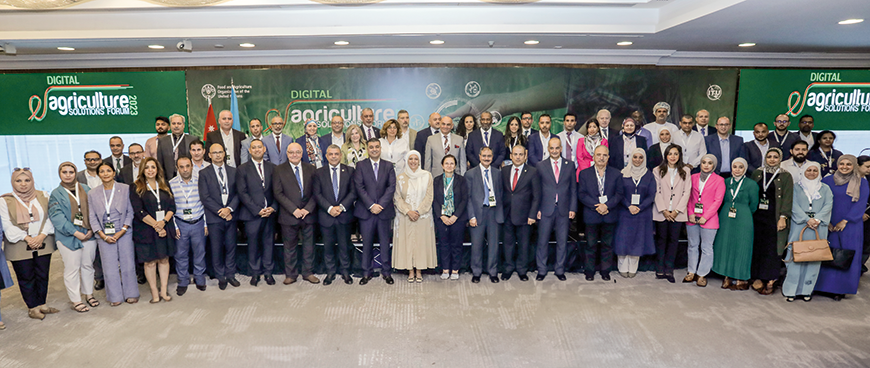AMMAN — Positioning digital solutions at the heart of agricultural transformation is extremely necessary to respond to the rising challenges of climate change, say experts.
HRH Princess Basma Bint Ali inaugurated the Digital Agricultural Solutions Forum 2023 on Tuesday. The three-day event is organised by Food and Agriculture Organisation (FAO) and International Telecommunication Union (ITU), in collaboration with CGIAR. The aim of the forum is to examine and present long-term digital agricultural transformation tools.
During the event, experts highlighted the need to employ digital technologies to help the agricultural sector regain its value through agricultural digitalisation. They noted that the agricultural sector’s contribution to the national GDP has decreased by almost 20 per cent due to extreme weather conditions as well as climate change challenges.
Experts said that Internet accessibility in the Arab world is estimated to be around 70 per cent. However, digital literacy remains an obstacle in the way of digital agriculture solutions. Experts suggested implementing digital literacy programmes that farmers can benefit from, widen the scope of Internet use among individuals of all societal backgrounds, enhance the Internet infrastructure in the agricultural areas, build an agriculture database and employ AI tools and technologies to help the agricultural sector.
“Digital agriculture has the potential to help smallholder farmers become more resilient and improve their livelihoods,” Princess Basma, FAO Goodwill Ambassador for NENA, said.
The princess added that effective partnerships and incentives are needed to sustain an inclusive digital ecosystem.
“We must identify, develop and sustain national digital agriculture solutions to benefit the agriculture community and ensure a food secure world that benefits the backbone of our food producers and smallholders and family farmers across the region,” AbdulHakim Elwaer, FAO assistant director general and regional representative for the Near East and North Africa, said.
Experts stressed that land and water resources in the NENA region are limited and facing severe stress. Moreover, climate change projections suggest more drought and extreme events, therefore, a transformative approach is needed to support agriculture production systems to become more productive, sustainable, efficient and inclusive.
Adel Darwish, director of the regional office for the Arab states at ITU, said that in order for digital agriculture to be sustainable and impactful, a cohesive government approach needs to be adopted.
“Stakeholders from both digital and agricultural sectors have important roles to play, and they should be guided and driven by a national digital agricultural strategy,” Darwish noted.
Minister of Agriculture Khalid Hneifat said that as part of the digital transformation, the ministry found six IT training centres nationwide.
“The ministry is currently building a full database specialised in assessing and predicting agriculture dangers,” Hneifat added.
